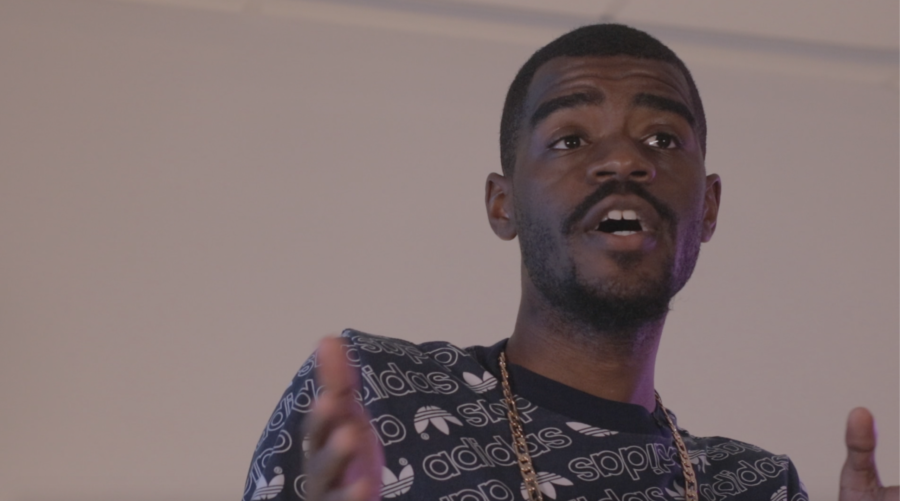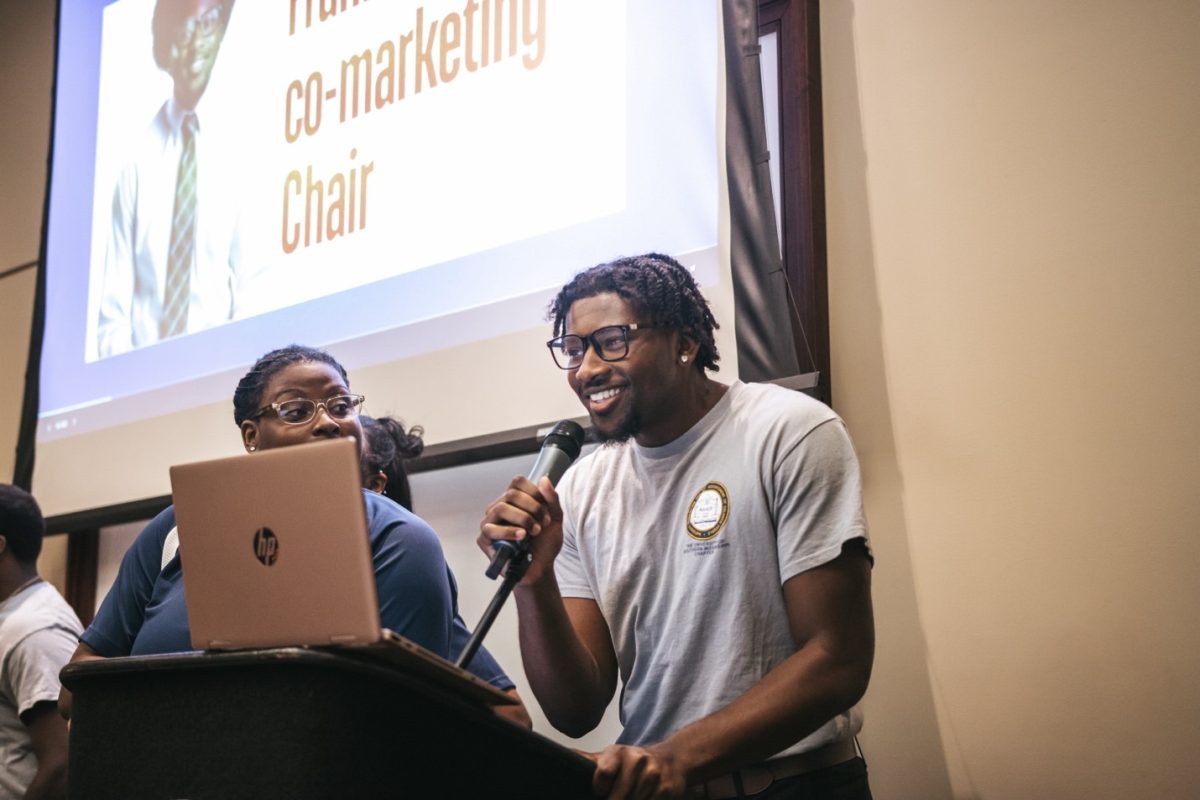Antonio Norwood is a sophomore English major with a unique perspective in poetry. In his poetry, he conveys his life as a black, gay autistic individual. He chose writing, forging a different path from everyone else.
“I have been writing since I was thirteen. In middle school, I was a heavy daydreamer. I zoned out and wrote short stories while not paying attention in class,” Norwood said. “I started with writing short stories, but I felt I wasn’t getting anywhere with it. Then I transitioned to poetry and started with writing how I am feeling and personal experiences.”
Norwood labels himself as a freeform poet. Freeform is a style of poetry or writing that does not rely on structure or rhythm and works as a stream of consciousness. It is a style that is the most accessible because of its lack of restraints and a practice for individuals wanting to pour out their emotions and thoughts faster and a grounding activity for living in the present.
“Freeform gives me the creative freedom to be more transparent on paper,” Norwood said.
His process for writing is simple. To get into the mindset to write he loves listening to Mary J. Blige.
“Her music is so therapeutic to me. Whenever I have a bad day, I listen to her music to feel better and give me energy to make poetry,” Norwood said.
Other writers tend to rely on specific brands of materials, but he keeps his tools simple with any simple pen and paper used to release his emotions and memories onto the page.
He finds locations like the park and the beach inspiring to his creative process.
“The park for me is when I can look up at the clouds and daydream about what is dear to me. For the beach, I go up to the ocean and listen to the sound of waves crashing. It’s a sense of release for me as I hear the hypnotic sound of water,” Norwood said.
Poetry is a hard field to break into. A successful poem relies on wordplay, rhythm or interesting structure. According to Norwood, writing poetry is all a matter of action. He advises everyone to not be intimidated. If he or she is passionate enough about writing, they should take a chance and practice their craft.
“There are even people in the English department who don’t know what to do with their majors, but those who do want to get into English and writing, just go for it. Don’t let anyone stop you,” he said.
True to his word, Norwood pushes the envelope and addresses modern concerns of young adults. In his work, he expresses his sentiments on many personal and serious topics like body positivity, racism, colorism, homophobia and mental health.
“I feel we have moved forward, but we still have a long way to go,” Norwood said.
He speaks out on the importance of diverse representations of race, gender and sexual orientation.
“Representation especially matters to aspiring African Americans writers and filmmakers who want to get their names out there and get exposer. I want to see positive representation of African Americans in media,” Norwood said.


























